By VANEESHA KRISHNASAMY
SOMETIMES, working hard doesn’t mean emerging victorious.
The Malaysian blind football team knows that better than anyone. Last week, they saw four years of hopes, aspirations and sheer hard work crumble away when they crashed out of the IBSA Blind Football Asian Championships.
In a nerve-wracking game, Malaysia narrowly lost to South Korea 4-3 at the Tun Razak Hockey Stadium in Kuala Lumpur.
The loss meant they couldn’t make it to the top four of the competition, and therefore wouldn’t qualify for the 2018 IBSA Blind Football World Championships, the “World Cup” of blind football.
It also meant their contract with the Malaysian Sports Council (MSC) wouldn’t be renewed when it expires on Dec 31.
While the news was a blow – the players will lose their full-time national athlete perks like housing, a salary, access to the National Sports Institute’s services, etc. – it wasn’t exactly a surprise to them.
“We failed to meet our KPIs. We had two – to get a gold at the Asean Para Games and to qualify for the World Championships, and we didn’t meet any of them,” said coach Sunny Shalesh.
“MSC had to do what they had to do. I wish it could have been different, but that’s football. Results matter.”
Despite MSC’s withdrawal of support for the team, Youth and Sports Minister YB Khairy Jamaluddin had some encouraging words.
“Malaysian blind football has come a long way,” he said after Malaysia’s match against Japan.
“Although we’re not going to make it for the World Cup next year, the future looks good because the gap between Malaysia and the other Asian countries used to be quite big, and now we’re narrowing that gap.”
Without the backing of the MSC, the team will revert to part-time status. That means having to depend on sponsorships and finding other ways for the players to earn a steady income.
“The majority of the team is trying to figure out our next step like looking for jobs and houses, as we will no longer have an allowance and place to stay come January,” said team captain Mohd Amirul Arif.
“We wish there were more job opportunities for the blind, so it’ll be easier for us to look after ourselves.”
It’s a major personal setback for the boys, but they’re determined to continue advancing the sport in Malaysia.
“We’re going to keep pushing forward,” said Sunny. “We have the support of CIMB Foundation, and we aren’t going to stop aiming high – after all, we still have the 2020 Tokyo Paralympics to train for.”
With the help of CIMB Foundation, Sunny formed the team four years ago, turning them from amateurs to national athletes and 2015 Asean Para Games gold medallists.
Before becoming footballers, many of them worked as masseurs and telephone operators, or did odd jobs.
“Blind football has changed the boys’ lives. They managed to become Asean gold medallists – not many people can say the same. It’s amazing to see how this opportunity has impacted them and given them so much more confidence in themselves,” he said.
With the team now having to train independently, they need the public’s support more than ever.
“Keep supporting our boys. Reach out to the blind football team – job offers, sponsorships, even mineral water will help,” said Sunny. “Anyone can come up and help, there’s so much you can do.”
The Star’s R.AGE team has been following the team’s remarkable journey for a multimedia documentary project, Eye On The Ball, with support from CIMB Foundation.
The project will culminate in a feature-length documentary film directed and produced by award-winning filmmaker and R.AGE senior producer Chen Yih Wen. It is slated for a 2018 release.
To find out more about blind football and the Malaysian national team’s remarkable story, go to
fb.com/EyeOnTheBallFilm.
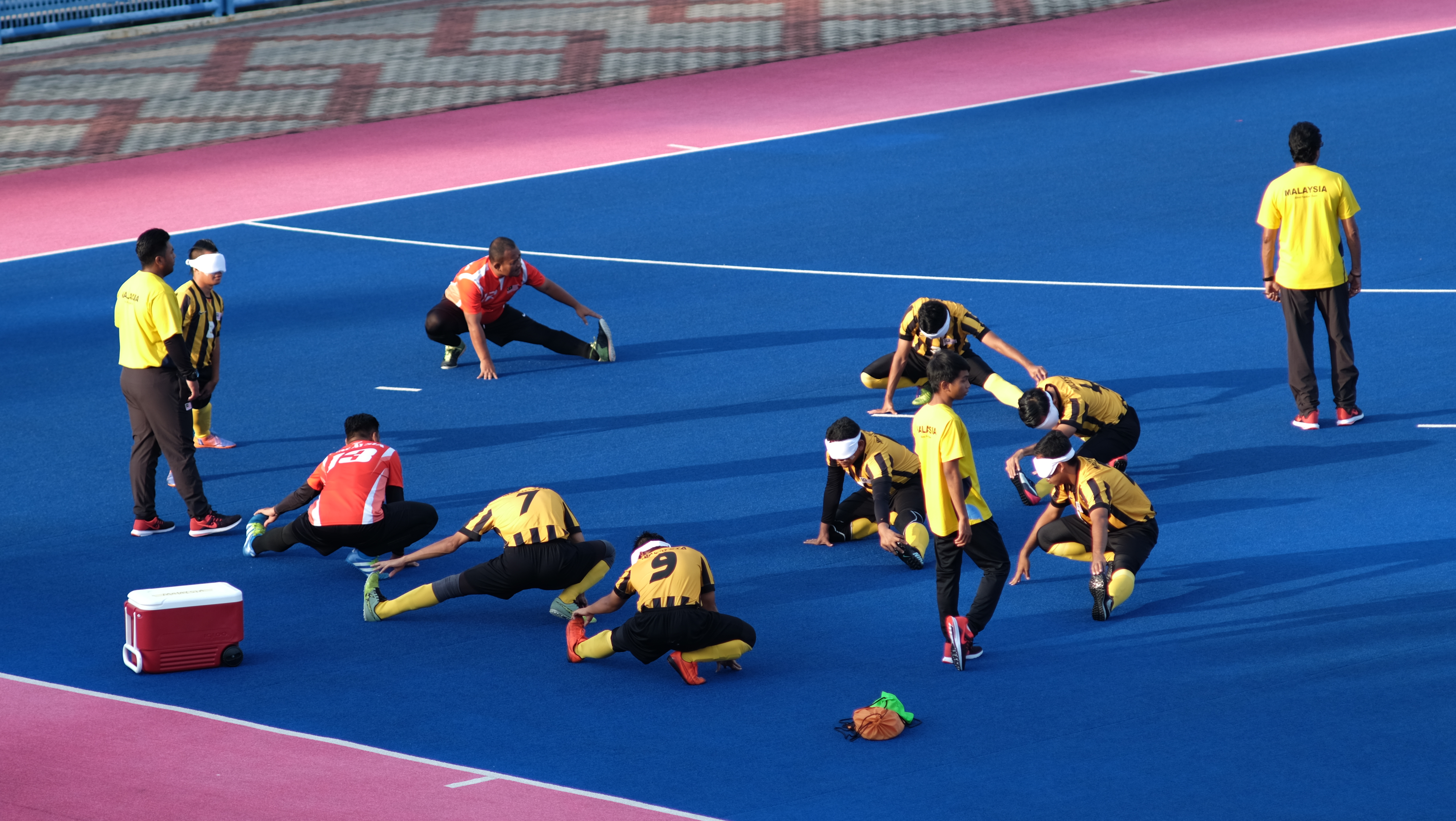
The team warming up before their match against Japan. Coach Sunny spent four years turning them from amateur players to ASEAN gold medalists/ However, a spate of poor performances this year have bumped them back down the ranks.
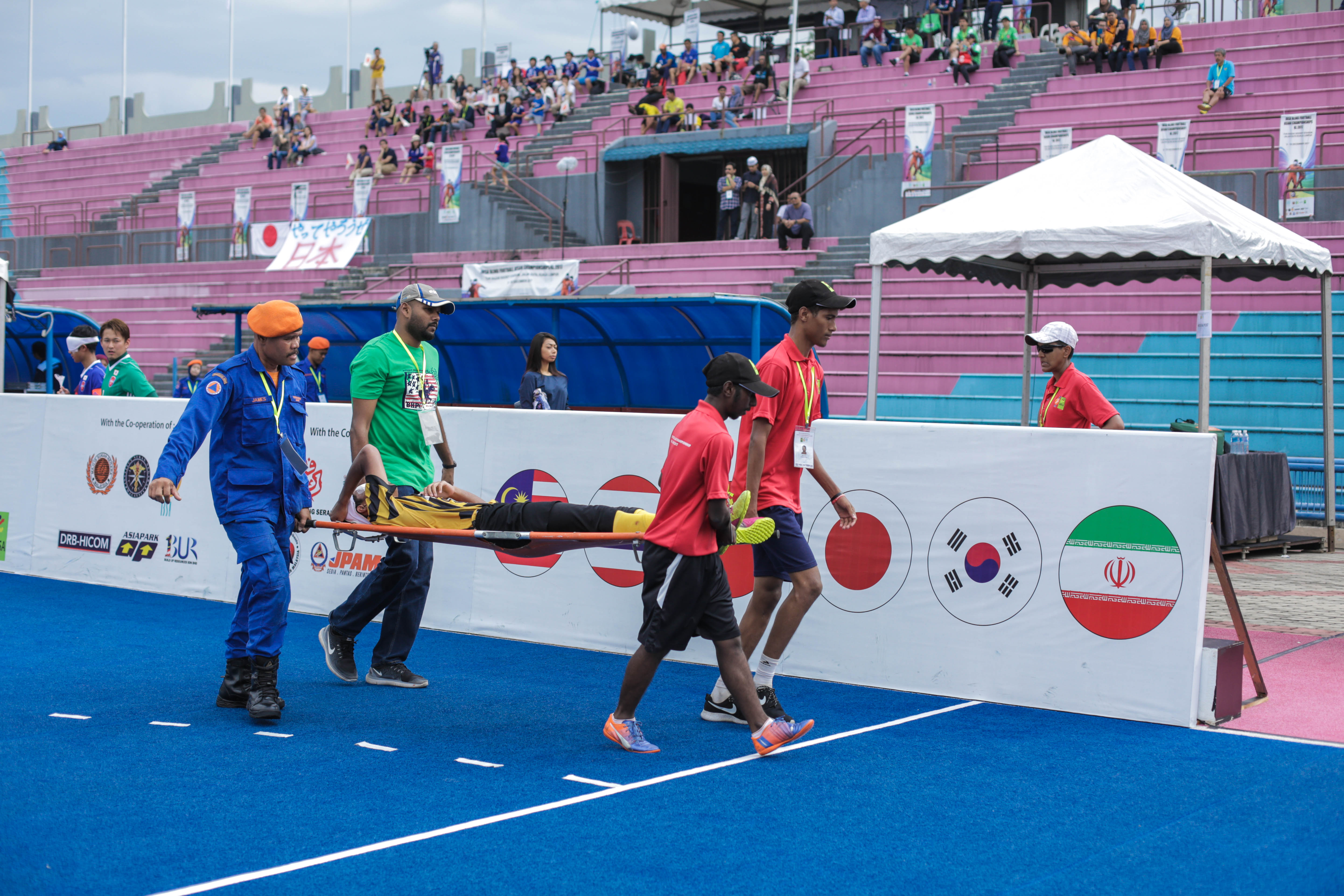
Football is dangerous; blind football even more so. Striker Ahmad Fikri Omar had to be carried off the patch after a head-on collision with a Japanese player. Blind footballers are regularly at risk of such contact injuries when they play.
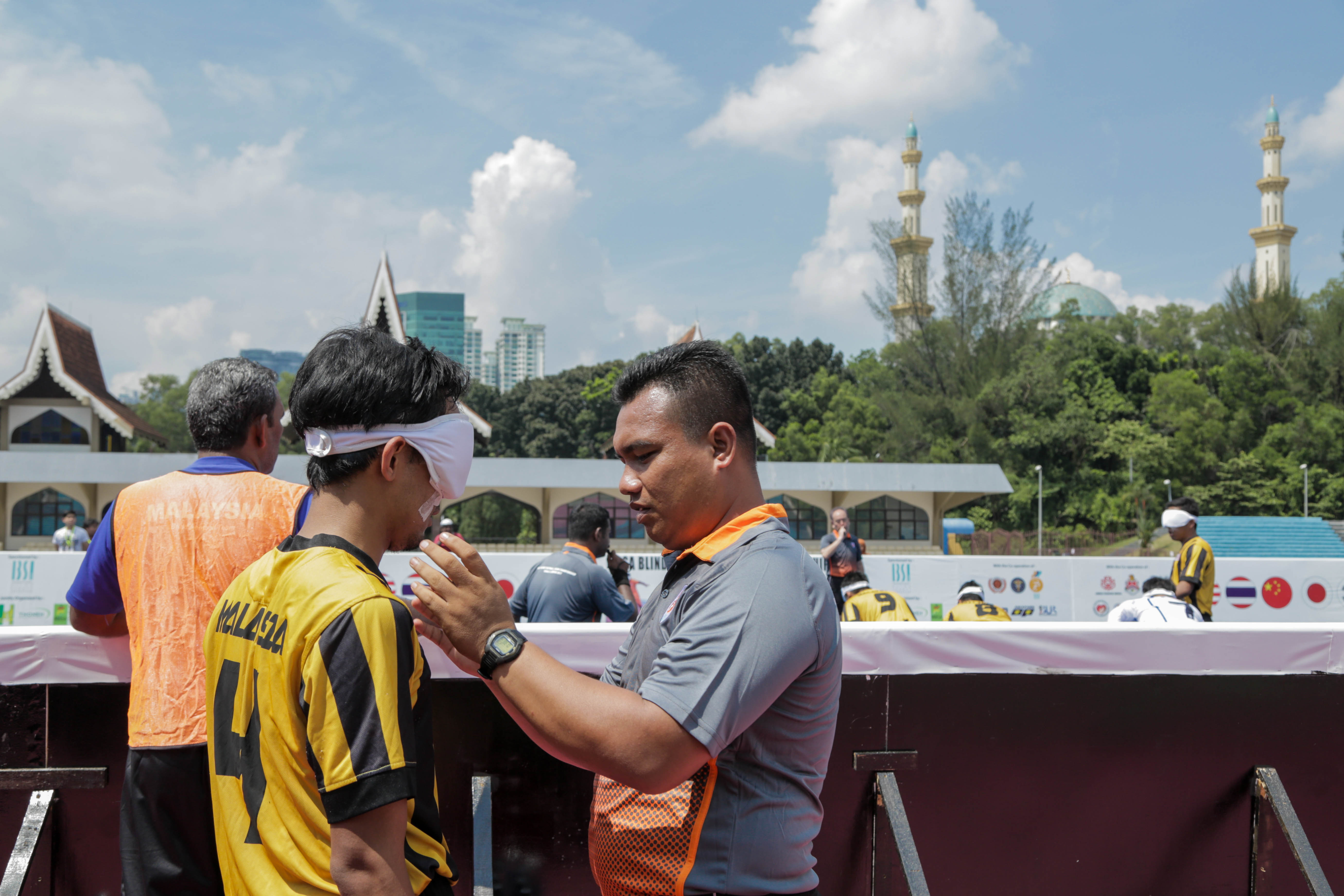
Because there are different degrees of blindness, all footballers are required to be blindfolded.
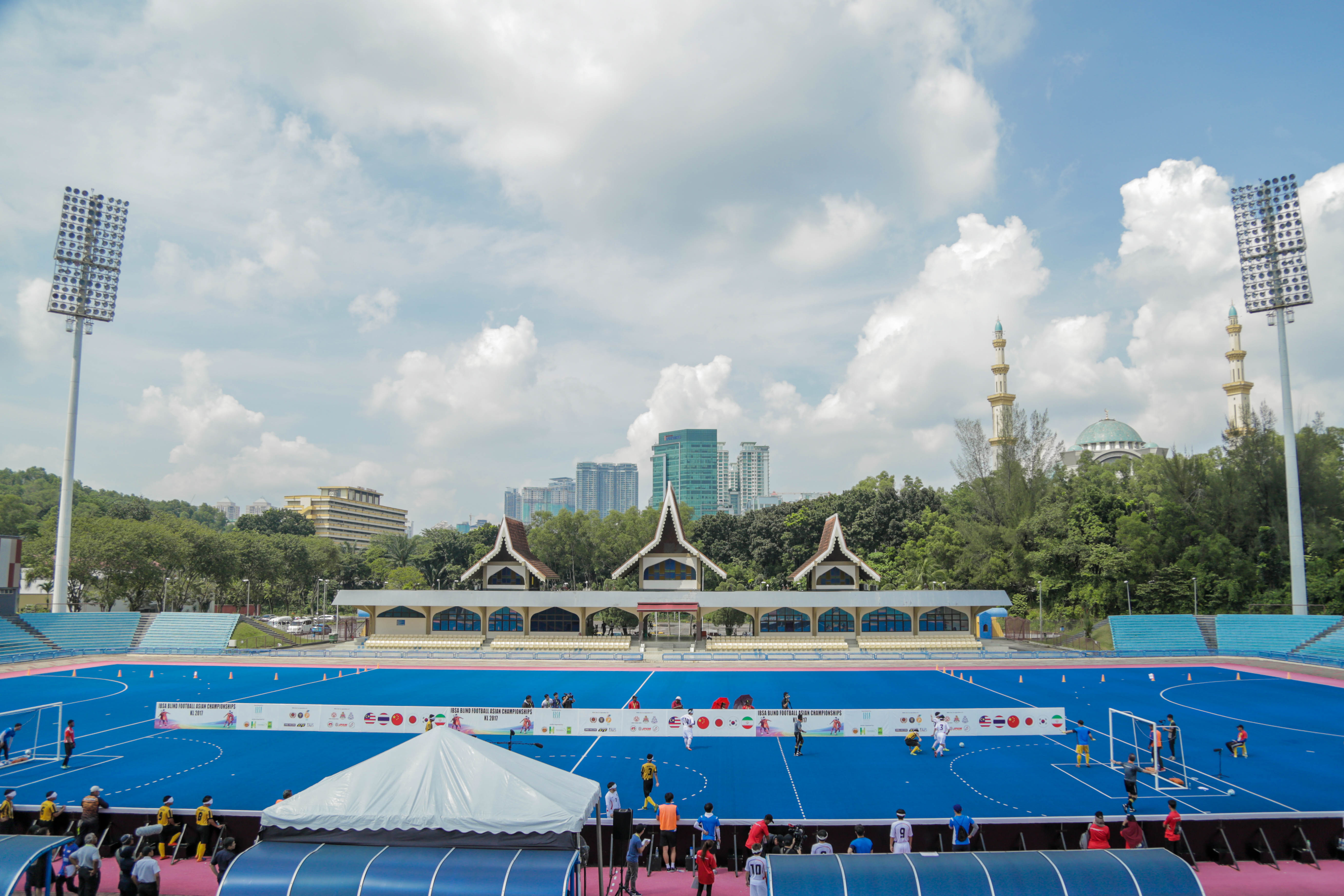
Six Asian countries met at the Tun Razak Hockey Stadium to compete in the IBSA Blind Football Asian Championships. The stakes were high: only the top four would qualify for the 2018 IBSA Blind Football World Championships, the ‘World Cup’ of blind football.-Photos: VANEESHA KRISHNASAMY/R.AGE
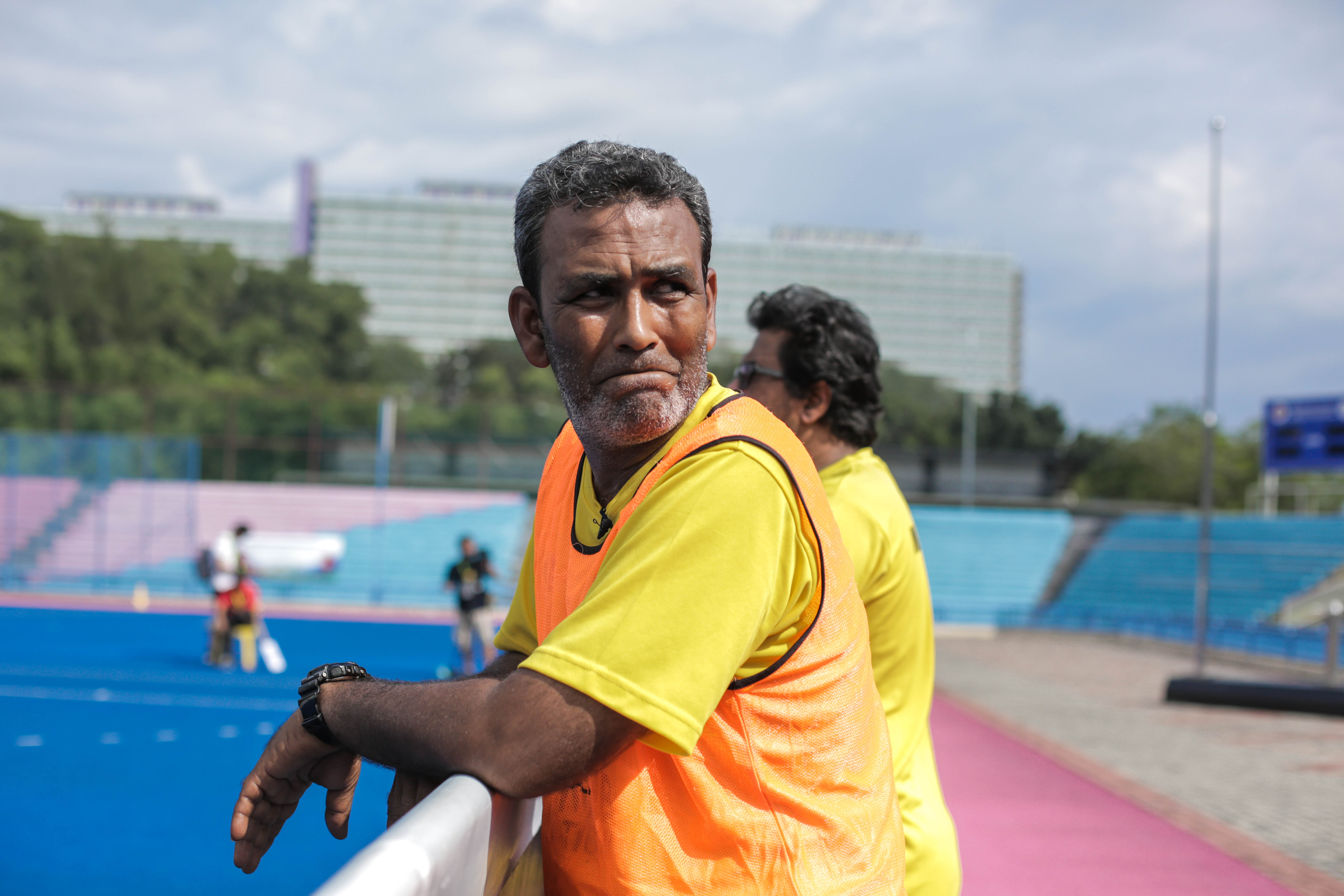
‘We’re sad of course, but the boys have accepted the situation with dignity and grace,’ said Coach Sunny. He is determined that the team pick itself up and move past the disappointment of the IBSA Blind Football Asian Championships. His new aim is for the team to play in the 2020 Tokyo Paralympics.
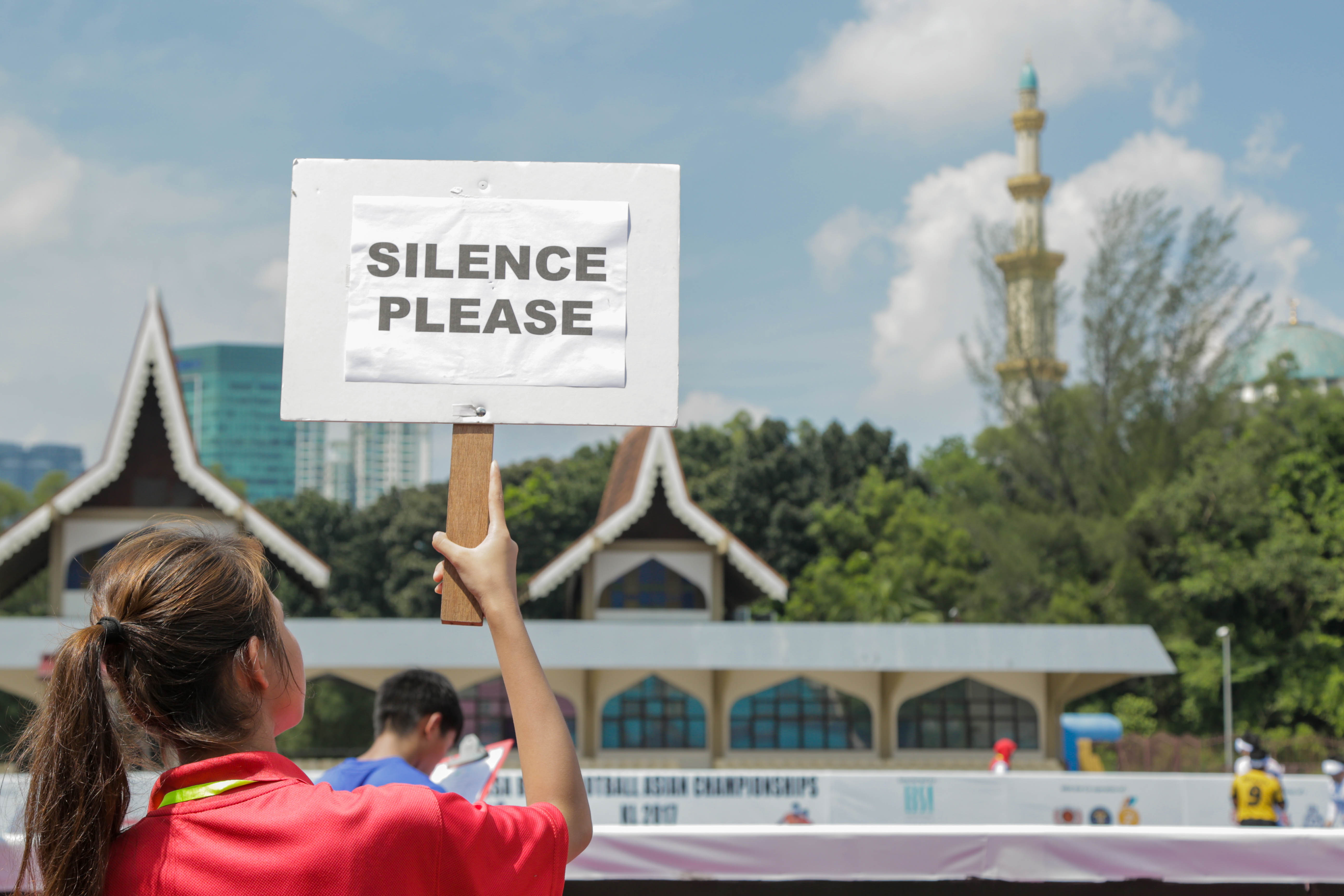
Supporters are urged to be quiet while the match is in play. The players rely heavily on their hearing for accurate spatial awareness, and need as much silence as possible to hear the rattle of the ‘audible ball’, a special football for blind players.
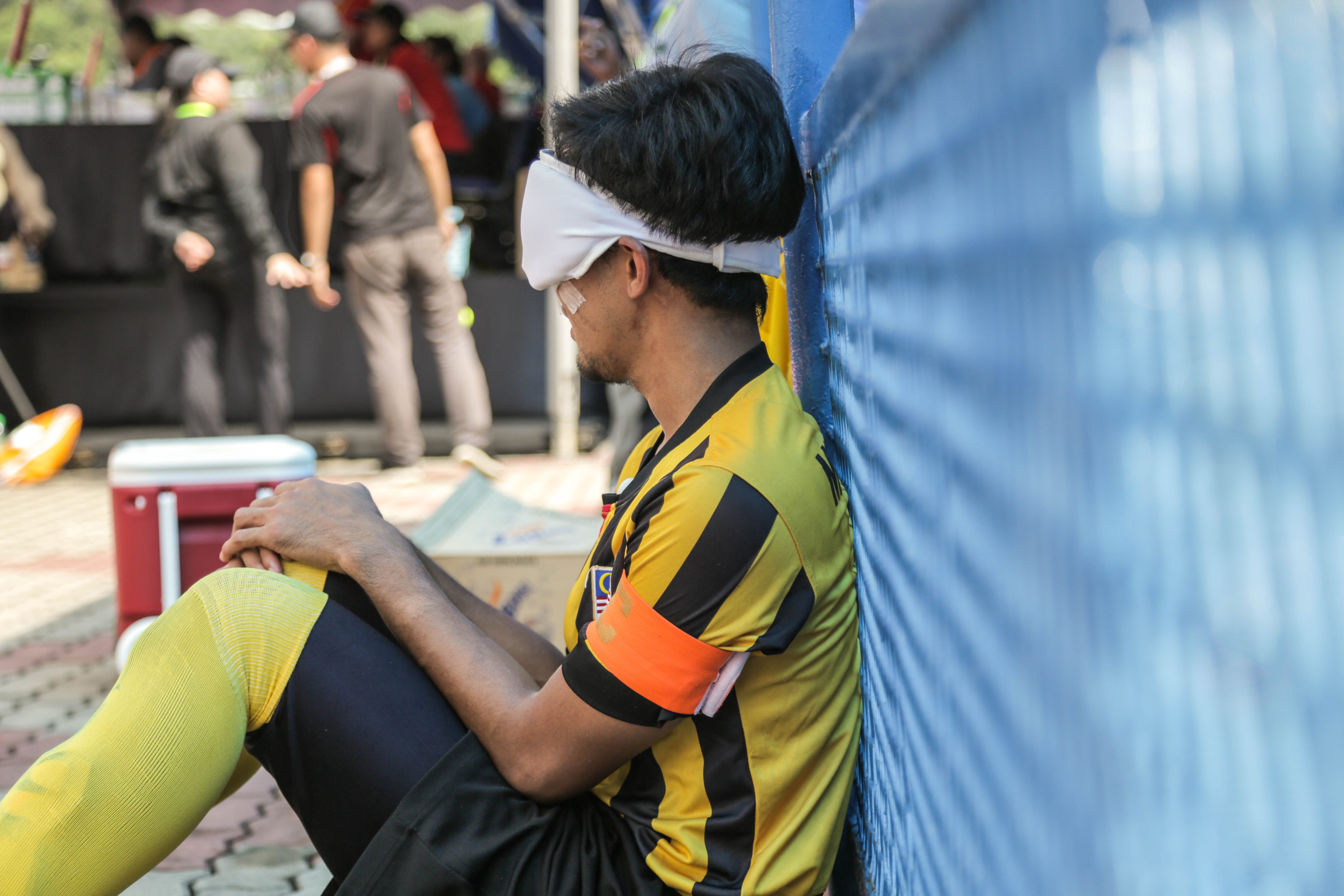
Mohd Amirul Arif lost his eyesight at eight due to an allergic reaction to medication, but it hasn’t stopped him from rising through the ranks to become captain of the national blind football team, and graduating with a Diploma in Business Studies from UiTM.
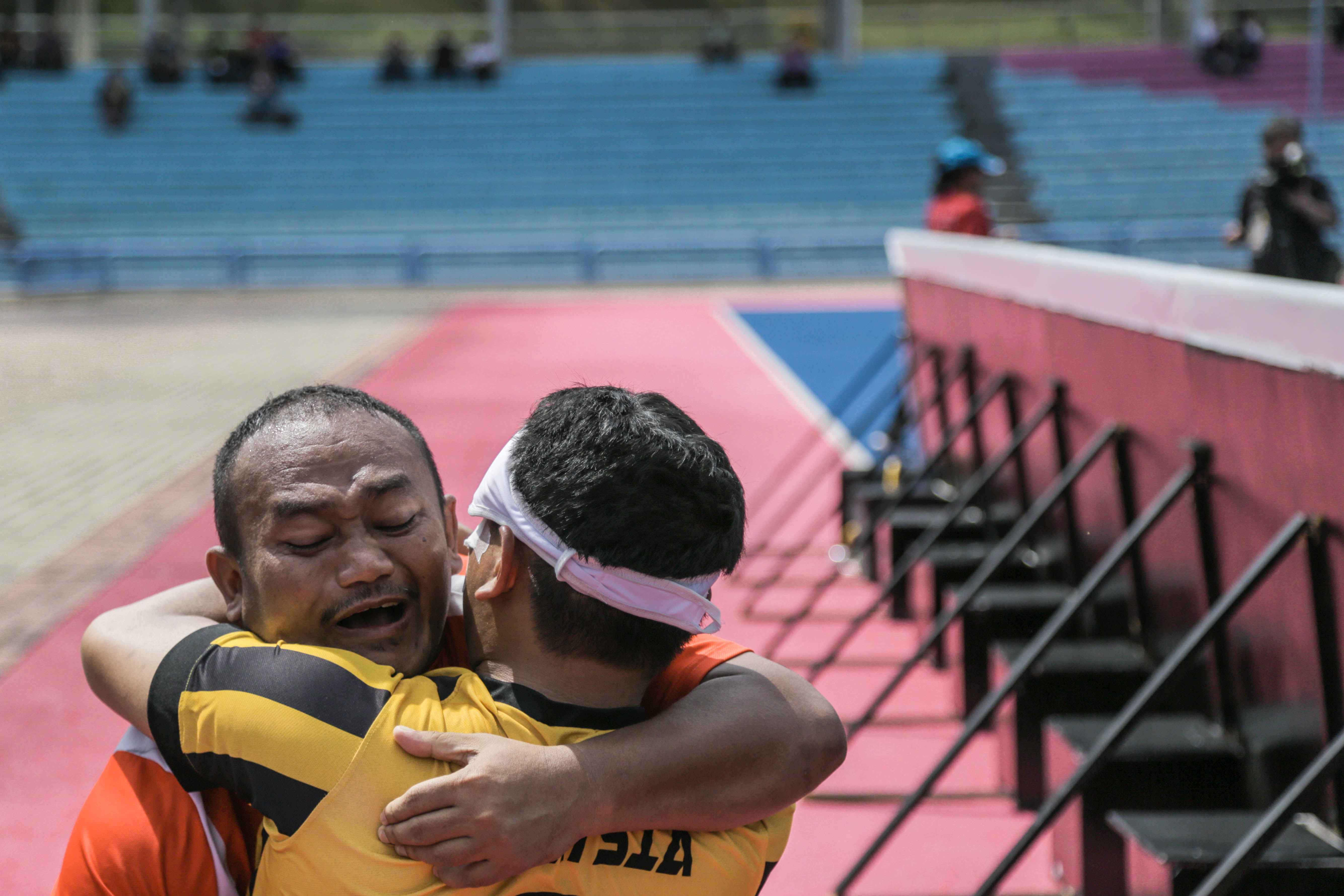
Goalkeeper Ahmad Bustaman (left) amd striker Azril Che Ahmad celebrate as Malaysia scored their first goal against South Korea. The celebration was short-lived, as South Korea went on to beat Malaysia 4-3. The tournament was the last opportunity for Ahmad, a primary school teacher, to represent the national team.
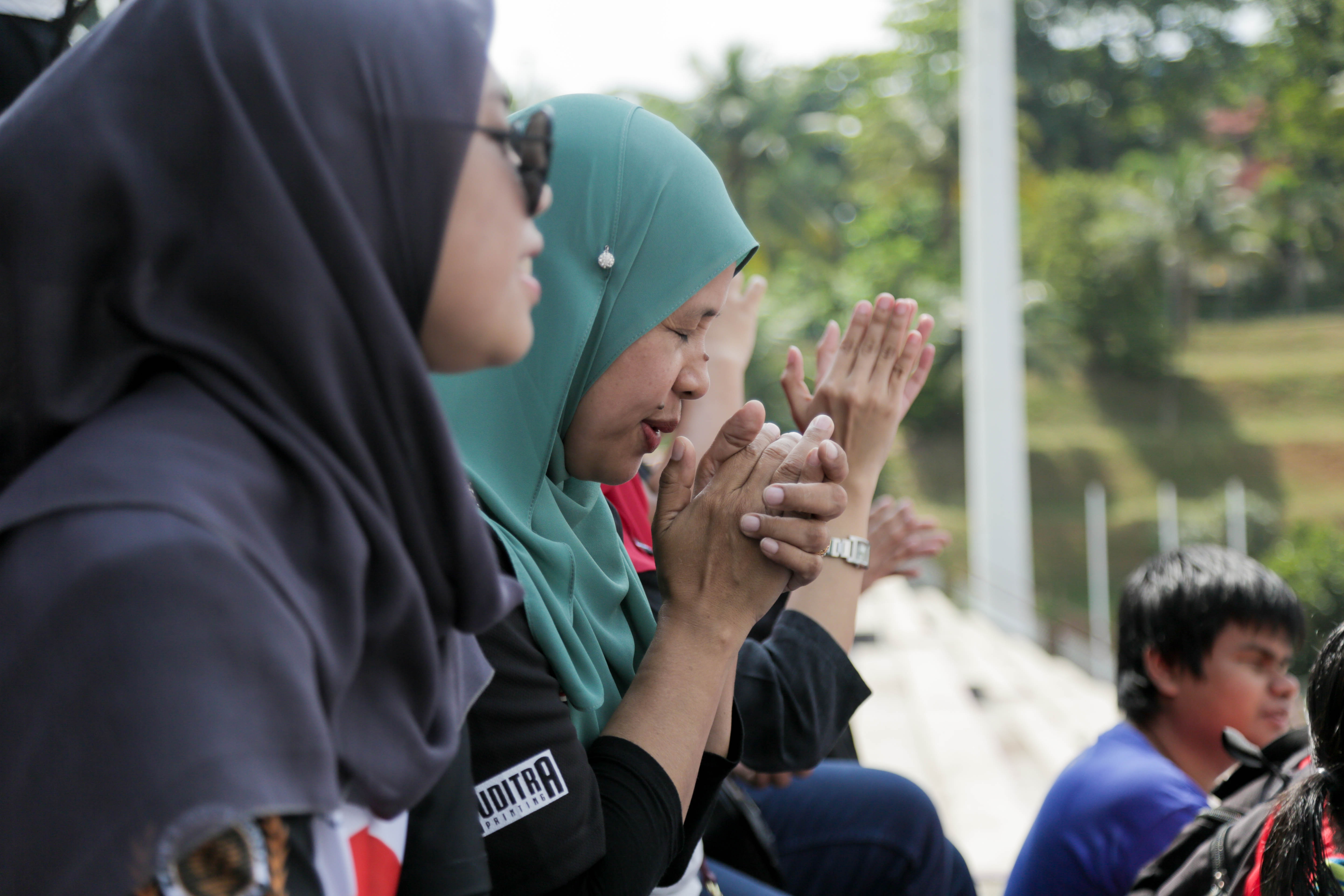
Emotions ran high during the Asian Championships, both on the pitch and in the stands. Arif’s mother Roshani Salleh says a brief prayer as her son battles to captain his team towards victory.
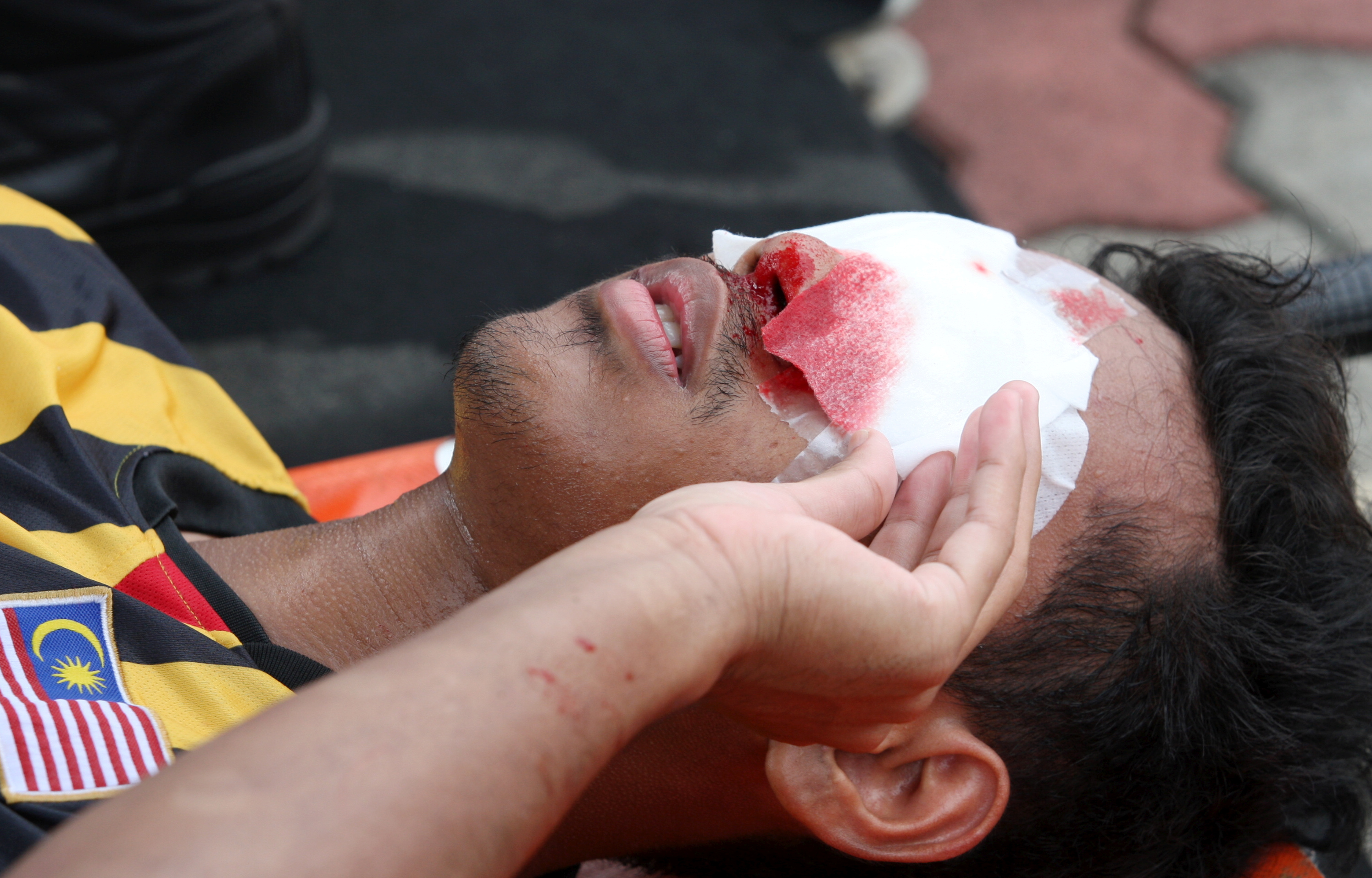
Football is dangerous; blind football even more so. Striker Ahmad Fikri Omar had to be carried off the patch after a head-on collision with a Japanese player. Blind footballers are regularly at risk of such contact injuries when they play.

The Asian Championships started off on an intense note, with the Malaysian defense holding strong against and onslaught from Iran, the 2016 Paralympics silver medalists. Malaysia battled bravely before finally conceding two goals in the second half to lose their opening match-RICKY LAI/ The Star
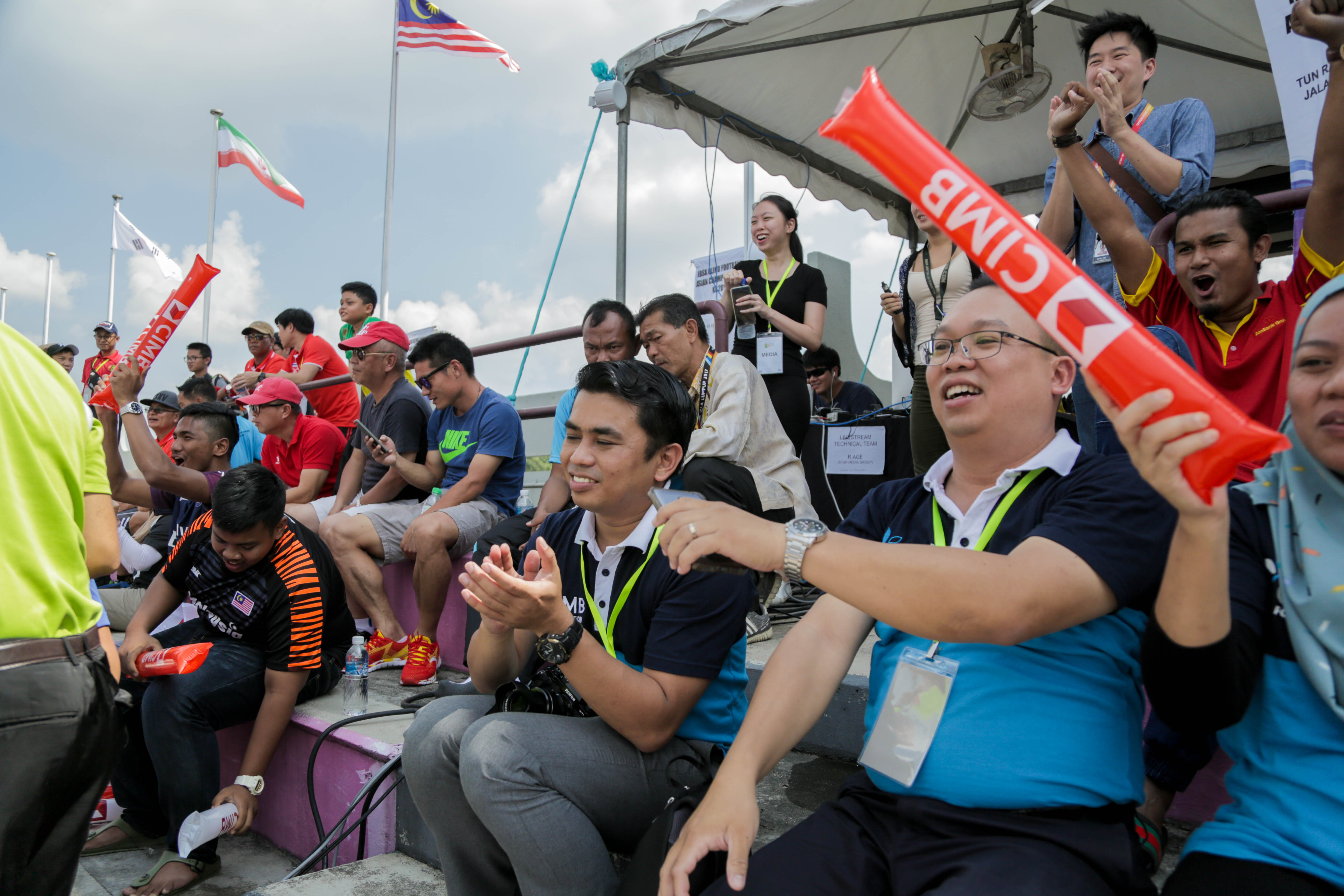
Fans and CIMB Foundation representatives alike cheered as the Malaysian team fought to qualify for the World Championships. The foundation has sponsored blind football since 2012, and is also supporting the R.AGE team’s Eye On The Ball multimedia documentary project on the team’s remarkable journey.
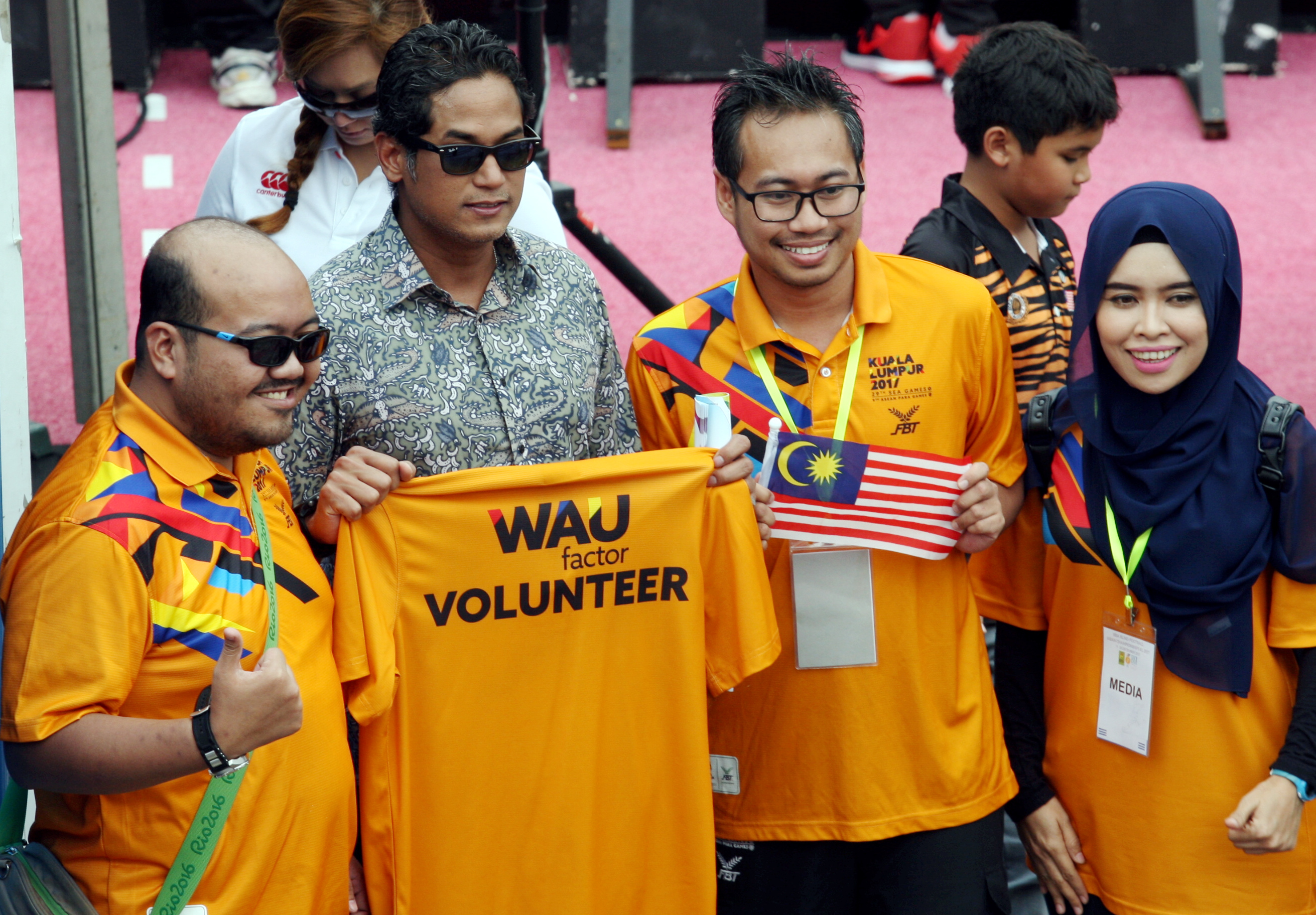
Despite the disappointing results at the finals, Youth and Sports Minister YB Khairy Jamaludin hailed the team’s development over the past few years. ‘The future looks good for blind football,’ he said.-S.S KANESAN/The Star















Leave a reply